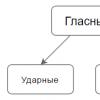In the novel "Eugene Onegin", Pushkin outlined the nobility with light strokes - the people in whose society Eugene Onegin revolved, and with whom, in addition to the main characters, he had to maintain relations and communicate. The metropolitan nobility was strikingly different from the provincial landowners who lived in the outback. This gap was all the more noticeable the less often the landowners traveled to the capital. The interests, level of culture, education of both were often at different levels.
The images of the landowners and the high-society nobility were only partly fictitious. Pushkin himself revolved in their environment, and most of the paintings depicted in the work were peeped at social events, balls, and dinners. The poet communicated with the provincial society during his forced exile in Mikhailovsky and during his stay in Boldino. Therefore, the life of the nobility, in the countryside, in Moscow and St. Petersburg, is depicted by poets with knowledge of the matter.
Provincial landed nobility
Along with the Larin family, other landowners also lived in the province. The reader gets acquainted with most of them at name days. But some touches-sketches to the portraits of neighbors-landlords can be seen in the second chapter, when Onegin settled in the village. Simple in their mental disposition, even somewhat primitive people tried to make friends with a new neighbor, but as soon as he saw the approaching droshky, he mounted his horse and left the back porch so as not to be noticed. The maneuver of the newly-minted landowner was noticed, and the neighbors, offended in their best intentions, stopped their attempts to make friendship with Onegin. Pushkin interestingly describes the reaction to the replacement of corvée with dues:
But in his corner pouted,
Seeing in this terrible harm,
His prudent neighbor;
The other smiled slyly,
And in a voice everyone decided so,
That he is the most dangerous eccentric.
The attitude of the nobles towards Onegin became hostile. Sharp-tongued gossip began to talk about him:
“Our neighbor is ignorant; crazy;
He is a pharmacist; he drinks one
A glass of red wine;
He does not fit the ladies' hands;
Everything Yes Yes No; won't say yes, sir
ile no with". That was the general voice.
Invented stories are able to show the level of intelligence and education of people. And since he left much to be desired, Lensky was also not enthusiastic about his neighbors, although out of courtesy he paid them visits. Though
Lords of neighboring villages
He didn't like feasts;
Some landowners, whose daughters were growing up, dreamed of getting a "rich neighbor" to be their son-in-law. And since Lensky did not seek to fall into someone's skillfully placed networks, he also began to visit his neighbors less and less:
He ran their noisy conversation.
Their conversation is prudent
About haymaking, about wine,
About the kennel, about your family.
In addition, Lensky was in love with Olga Larina and spent almost all his evenings in their family.
Almost all the neighbors came to Tatyana's name day:
With his stout wife
The fat Trifle has arrived;
Gvozdin, an excellent host,
Owner of poor men;
Here Pushkin is clearly being ironic. But, unfortunately, among the landowners there were many such Gvozdins, who ripped off their peasants like sticky.
Skotinins, gray-haired couple,
With children of all ages, counting
Thirty to two years;
County dandy Petushkov,
My cousin, Buyanov,
In down, in a cap with a visor
(As you, of course, know him),
And retired adviser Flyanov,
Heavy gossip, old rogue,
A glutton, a bribe taker and a jester.XXVII
With the family of Panfil Kharlikov
Monsieur Triquet also arrived,
Wit, recently from Tambov,
With glasses and a red wig.
Pushkin does not need to spend long stanzas on characterizing the guests-landlords. The names spoke for themselves.
The celebration was attended not only by landlords representing several generations. The older generation was represented by the Skotinins, the gray-haired couple, they were clearly over 50, the retired adviser Flyanov, he was also well over 40. In each family there were children who made up the younger generation, who were happy with the regimental orchestra and dancing.
The provincial nobility tries to imitate the capital by arranging balls and holidays, but here everything is much more modest. If in St. Petersburg dishes prepared by French chefs from overseas products are offered, then in the provinces their own stocks are put on the table. The oversalted fatty pie was prepared by yard cooks, tinctures and liqueurs were made from berries and fruits picked in their own garden.
In the next chapter, which describes the preparation for the duel, the reader will meet another landowner
Zaretsky, once a brawler,
Ataman of the gambling gang,
The head of the rake, the tribune of the tavern,
Now kind and simple
The father of the family is single,
Reliable friend, peaceful landowner
And even an honest person.
This is him, Onegin is afraid, not daring to offer Lensky reconciliation. He knew that Zaretsky could
Friends quarrel young
And put them on the barrier
Or make them reconcile,
To have breakfast together
And then secretly defame
A funny joke, a lie.
Moscow noble society
 Tatyana came to Moscow not by chance. She came with her mother to the bride fair. Close relatives of the Larins lived in Moscow, and Tatyana and her mother stayed with them. In Moscow, Tatyana came into close contact with the society of the nobility, which was more archaic and frozen than in St. Petersburg or the provinces.
Tatyana came to Moscow not by chance. She came with her mother to the bride fair. Close relatives of the Larins lived in Moscow, and Tatyana and her mother stayed with them. In Moscow, Tatyana came into close contact with the society of the nobility, which was more archaic and frozen than in St. Petersburg or the provinces.
In Moscow, Tanya was received warmly and sincerely by her relatives. The old women scattered in their memories, the “young graces of Moscow”, looking closely at the new relative and friend, found a common language with her, shared the secrets of beauty and fashion, talked about their heartfelt victories and tried to extort her secrets from Tatyana. But
the secret of your heart,
Treasured treasure and tears and happiness,
Keeps silent meanwhile
And they don't share it with anyone.
Guests came to Aunt Alina's mansion. In order not to appear overly distracted or arrogant,
Tatyana wants to listen
In conversations, in general conversation;
But everyone in the living room takes
Such incoherent, vulgar nonsense;
Everything in them is so pale, indifferent;
They slander even boringly.
All this was not interesting to a romantically inclined girl, who, deep down, might have been waiting for some kind of miracle. She often stood somewhere on the sidelines, and only
Archival young men in a crowd
They stare at Tanya
And about her among themselves
They speak unfavorably.
Of course, such "archival young men" could not interest the young lady. Here Pushkin used the Old Slavic form of the adjective to emphasize the belonging of "young men" to the "last century". Late marriages were not uncommon in the late 18th and early 19th centuries. Men were forced to serve in order to make a certain fortune, and only then did they get married. But they chose young girls as brides. So marriages of unequal age were not uncommon at that time. They looked down on the provincial young lady.
Together with her mother or cousins, Tatyana visited theaters, she was taken to Moscow balls.
There is tightness, excitement, heat,
The roar of music, the sparkle of candles,
Flashing, whirlwind of fast couples,
Beauties light dresses,
People full of choirs,
Brides a vast semicircle,
All the senses strike suddenly.
Here they seem dandies note
Your impudence, your vest
And an inattentive lorgnette.
Holiday hussars come here
They rush to appear, to thunder,
Shine, captivate and fly away.
At one of the balls, her future husband drew attention to Tatyana.
Nobles of St. Petersburg
In the first part of the poetic novel, the secular society of St. Petersburg was described in light sketches, a look from the outside. About Onegin's father, Pushkin writes that
Serving excellently nobly,
His father lived in debt
Gave three balls annually,
And finally screwed up.
Not one Onegin Sr. lived in this way. For many nobles, this was the norm. Another stroke of the secular society of St. Petersburg:
Here is my Onegin at large;
Shaved in the latest fashion
How dandy London dressed -
And finally saw the light.
He's completely French
Could speak and write;
Easily danced the mazurka
And bowed at ease;
What do you want more? The world decided
That he is smart and very nice.
 Description, Pushkin shows what interests and worldviews aristocratic youth have.
Description, Pushkin shows what interests and worldviews aristocratic youth have.
No one is embarrassed that the young man does not serve anywhere. If a noble family has estates and serfs, then why serve? In the eyes of some mothers, perhaps Onegin was a good match for the marriage of their daughters. This is one of the reasons why young people are accepted and invited to balls and dinners in the world.
He used to be in bed:
They carry notes to him.
What? Invitations? Indeed,
Three houses for the evening call:
There will be a ball, there is a children's party.
But Onegin, as you know, did not seek to tie the knot. Although he was a connoisseur of the "science of tender passion."
Pushkin describes the ball to which Onegin arrived. This description also serves as a sketch to characterize Petersburg customs. At such balls, young people met, fell in love
I was crazy about balls:
There is no place for confessions
And for delivering a letter.
O you venerable spouses!
I will offer you my services;
I ask you to notice my speech:
I want to warn you.
You also, mothers, are stricter
Look after your daughters:
Keep your lorgnette straight!
At the end of the novel, St. Petersburg secular society is no longer as faceless as at the beginning.
Through the close row of aristocrats,
Military dandies, diplomats
And proud ladies she glides;
Here she sat quietly and looked,
Admiring the noisy crampedness,
Flashing dresses and speeches,
Apparition of slow guests
In front of the young mistress ...
The author introduces the reader to Nina Voronskaya, a dazzling beauty. Pushkin gives a detailed portrait of the secular society of the capital in the description of dinner at Tatyana's house. Here gathered, as they said then, all the cream of society. Describing the people present at the dinner, Pushkin shows how high Tatiana climbed the hierarchical ladder, marrying a prince, a military officer and a veteran. Patriotic War 1812.
capital color,
And to know, and fashion samples,
Everywhere you meet faces
Necessary fools;
There were old ladies
In caps and roses, they look evil;
There were a few girls
Not smiling faces;
There was a messenger who said
About state affairs;
There he was in fragrant gray hair
The old man, joking in the old way:
Superbly subtle and smart
Which is kind of funny these days.Here he was greedy for epigrams,
Angry sir to everything:
But, along with representatives of high society, the dinner was attended by several random people who came here for various reasons.
There was Prolasov, who deserved
Known for the meanness of the soul,
In all albums blunted,
St.-Priest, your pencils;
At the door another ballroom dictator
He stood like a magazine picture,
Blush, like a willow cherub,
Tightened, dumb and immovable,
And the vagrant traveler,
Overstarched impudent.
Noble status made very high demands on its representatives. And in Russia there were many truly worthy nobles. But in the novel "Eugene Onegin" Pushkin shows, along with brilliance and luxury, vices, emptiness and vulgarity. The propensity to spend, living beyond one's means, and the desire to imitate, unwillingness to serve and benefit society, the impracticality and carelessness of secular society are shown in full in the novel. These lines were intended to make readers think, most of whom represented this very nobility, to reconsider their way of life. It is not surprising that "Eugene Onegin" was received by the reading public ambiguously, and not always favorably.
Human consciousness, the system of life values, as is clear, largely form the moral laws adopted in society. Pushkin announces in the novel both the metropolitan and Moscow and provincial nobility.
The author of the novel pays special sensitivity to the Petersburg nobility, a typical representative of which is Eugene Onegin. The poet describes in detail the day of his hero, and Onegin's day is a typical day of the capital's nobleman. Thus, Pushkin recreates a picture of the life of the entire St. Petersburg secular society. A fashionable daytime walk along a certain route (“Having put on a spacious bolivar, Onegin goes to the boulevard ...”), lunch at a restaurant, a visit to the theater. Moreover, for Onegin, the theater is not an artistic spectacle and, moreover, not a kind of club, but rather a place of love affairs, backstage hobbies. Pushkin gives his hero the following description:
Theater angry legislator,
Fickle Admirer
charming actresses,
Honorary Citizen Backstage…
Pushkin describes Onegin's office and his attire in great detail. The author, as it were, wants to once again emphasize the isolation of young people of that time from the national soil, because from early childhood they were in an atmosphere of a foreign language, people (governesses and tutors - foreigners) and things. (“But pantaloons, tailcoat, vest, / All these words are not in Russian ...”). The day of the young dandy ends with a ball, a favorite pastime of the capital's nobles.
Pushkin speaks of Petersburg high society with a fair amount of irony and without much sympathy, because life in the capital is “monotonous and motley”, and “the noise of the world gets bored very quickly”.
The local, provincial nobility is represented in the novel quite extensively. This is Onegin's uncle, the Larin family, guests at Tatyana's name day, Zaretsky.
Onegin's uncle was a "village old-timer", engaged in quarreling with the housekeeper, looking out the window, crushing flies and reading the "calendar of the eighth year."
Bright representatives of the provincial nobility gather at Tatyana's for a name day: Gvozdin, “an excellent host, a master of poor peasants”; Petushkov, “county dandy”; Flyanov, "heavy gossip, old rogue." If Pushkin introduces real historical figures, for example Kaverin, into the story about the capital's nobility, then in this case the author uses the names of famous literary characters: Skotinins are the heroes of Fonvizin’s “Undergrowth”, Buyanov is the hero of V. L. Pushkin’s “Dangerous Neighbor”. The author also uses speaking surnames. For example, Trike means " caned”- a hint that he cannot be accepted in high society, but in the province he is a welcome guest.
Not far from Lensky lives Zaretsky, “once a brawler”, “head of a rake”, now “father of a family bachelor”, “peaceful landowner”. But he can’t be called a decent person, because he loves “to quarrel young friends / And put them on the barrier.” This is also the case with Lensky and Onegin. In general, Zaretsky is responsible for the death of Lensky; although he, as a second, could have prevented the duel, he did everything possible to make it happen.
And Vladimir Lensky can be attributed to the local nobles. He is “a romantic and nothing else,” as Belinsky defined it. As a romantic, he does not know life at all, he sees people either in a pink or in a black light (“He was an ignoramus with a sweet heart ...”). He is alienated from the national culture, perhaps more than Onegin (the neighbors call Lensky half-Russian). Speaking about the future of Vladimir Lensky, Pushkin sees two possible ways. Following the first of them, he could become Kutuzov, Nelson or Napoleon, or moreover, end his life like this, like Ryleev, because Lensky is a passionate man, capable of a reckless, but heroic deed (in this he is close to Pushkin). But his trouble is that the environment in which he finds himself is hostile to him, in which he is considered an eccentric. Lensky would rather take the second path.
Choose only ONE of the proposed essay topics (2.1-2.5). In the answer sheet, indicate the number of the topic you have chosen, and then write an essay of at least 200 words (if the essay is less than 150 words, then it is rated 0 points).
Rely on the author's position (in the essay on lyrics, consider the author's intention), formulate your point of view. Argument your theses based on literary works (in an essay on lyrics, you must analyze at least two poems). Use literary-theoretical concepts to analyze the work. Consider the composition of the essay. Write your essay clearly and legibly, following the rules of speech.
2.5. What plots from the works of domestic and foreign literature are relevant to you and why? (Based on the analysis of one or two works.)
Explanation.
Comments on essays
The artistic originality of the novel "Eugene Onegin" is that one of its characters is the author himself. What brings the author closer to his hero? First of all, life circumstances. The author and the hero are people of the same circle. Both spent their youth in a secular society: balls, theater, friendly parties, novels ... However, the difference between them is already noticeable here.
From the very beginning of the novel, Onegin appears before us as a secular person, and secular not only in his way of life, but also “in spirit”: he feels great in a “higher” society, he absorbed secular morality with its hypocrisy, cynicism, fake. The author sharply separates himself from the secular world from the very beginning. Like Onegin, the author is well aware of how difficult "the conditions of light ... burden." The poet describes the high society exclusively in ironic tones: the sight of “stately”, “impregnable” ladies causes “spleen” in him, their “smart” conversation for him is “unbearable, though innocent nonsense”.
It is here that the author draws closer to Onegin, discovers in the hero the traits he likes: “involuntary devotion to dreams”, “inimitable strangeness” and “a sharp, chilled mind”. However, the poet immediately notices the difference: "I was embittered, he is gloomy." And from that moment on, the differences between them appear more and more clearly and noticeably. Onegin is far from everything Russian, national. He reads European literature, his idols are Byron, Napoleon. He, in essence, is indifferent to Russia, he was brought up by a French tutor, instilling in the child European manners, a style of thinking, and culture. Onegin is a romantic hero of the "European type". The author is a Russian man in his spirit and attitude, the origins of his personal development are in Russian culture.
Not in Russian ”Onegin is also cynical in the family sphere, family relations mean practically nothing to him. The novel only mentions his father and uncle, but the hero himself is depicted outside the family. For the author, home and family are the most important values in life.
For Onegin, "liberty and peace are a substitute for happiness." For the author, happiness is “clearness of the soul”, “pure love for the good”, “young inspiration”, “unceremonious friends” and “stormy desires of love”, “home circle”, “walks, reading, deep sleep, Forest shadow, murmur of jets ”- all the variety of feelings, thoughts and activities that life gives a person.
Thus, Pushkin's hero differs in many ways from the author, whose worldview is calm and harmonious, life is inspired by creative search, poetic work, communication with friends. Onegin's life is empty, he is an eternal wanderer in the Russian land. Pushkin leaves him the possibility of spiritual rebirth, the ability to find love, but happiness for him is forever lost. The tragedy of Onegin is not in his life circumstances and, above all, in his attitude.
2.2. Why was the duel between Pechorin and Grushnitsky inevitable? (Based on the novel by M. Yu. Lermontov "A Hero of Our Time".)
Grushnitsky is given in the novel through the eyes of Pechorin, who is rather ironic about the "friend". Both heroes are participants in hostilities in the Caucasus. They meet in Pyatigorsk, where they were sent from the active detachment for rest and treatment. Pechorin is a little older than Grushnitsky, but his sense of superiority over his friend is not dictated by age or even by the officer rank that Grushnitsky dreams of. Firstly, Pechorin looks down on everyone and no one can seriously oppose him, and secondly, Grushnitsky really deserves ridicule. The insightful Pechorin immediately sees all his minor weaknesses: the fear of appearing too young, the pretentiousness of speech, the passion for ready-made lush phrases "for all occasions." Such people "simply do not touch the beautiful", and they "importantly drape themselves in extraordinary feelings, sublime passions and exceptional suffering." And yet, Pechorin's statement may seem strange: "... we will someday collide with him on a narrow road, and one of us will be unhappy." Why does some funny poseur Grushnitsky evoke a sharp feeling of antipathy in Pechorin? Probably because Pechorin sees in Grushnitsky a caricature of himself. What Grushnitsky says is what Pechorin really experiences. Grushnitsky pretends to be disappointed and bored because it is fashionable, but Pechorin is really disappointed and cannot get rid of mortal boredom. For him, the blues is not a pose, but the misfortune of a lifetime. Therefore, conflict between them is inevitable.
2.3. What is the attitude of N.V. Gogol to the main character of the story "The Overcoat"?
“Why portray poverty ... and the imperfections of our life, digging people out of life, remote nooks and crannies of the state? ... no, there is a time when otherwise it is impossible to aspire society and even a generation to the beautiful, until you show the full depth of its real abomination" - wrote N.V. Gogol, and in his words lies the key to understanding the story.
The author showed the "depth of abomination" of society through the fate of the protagonist of the story - Akaky Akakievich Bashmachkin. His image has two sides. The first is spiritual and physical squalor, which Gogol deliberately emphasizes and brings to the fore. The second is the arbitrariness and heartlessness of others in relation to the main character of the story. The ratio of the first and second determines the humanistic pathos of the work: even such a person as Akaky Akakievich has the right to exist and be treated fairly. Gogol sympathizes with the fate of his hero. And it makes the reader involuntarily think about the attitude to the whole world around, and first of all about the sense of dignity and respect that every person should arouse for himself, regardless of his social and financial situation, but only taking into account his personal qualities and merits.
2.4. What are the ideas of G. R. Derzhavin about the essence of poetic creativity?
The theme of the poet and poetry is a traditional theme of Russian literature. Pushkin and Lermontov, Nekrasov and poets wrote about the essence of poetic creativity. silver age. We meet this theme in the work of Derzhavin. Derzhavin's programmatic work was the poem "Monument". main topic poems are the glorification of true poetry and the affirmation of the high purpose of the poet. "It is a true hymn to poetry. The main theme of the poem is set already in the first stanza: creativity becomes a kind of monument to its creator, and this" wonderful "monument turns out to be stronger and more durable than any" man-made monuments "- such is the power of poetic art. And the last stanza of the poem is traditional to the Muse:
O Muse! be proud of just merit,
And whoever despise you, despise those yourself;
With a leisurely, unhurried hand
Crown your forehead with the dawn of immortality.
These lines testify to the fact that Derzhavin is grateful to his Muse, and although he does not hope for the unanimous approval of his contemporaries, he retains the features of dignity and greatness on the threshold of immortality ..
2.5. You can see essays on a free topic on a separate page:.
One of the key roles in the novel "Eugene Onegin" is played by secular society in the role of the Russian aristocracy.
Like every society, it is located several steps above those around it because of its development. But, in principle, it does nothing, because it cannot find in itself the strength and ability to realize something.
Petersburg society appears in the novel before the reader with a touch of sarcasm and irony. Onegin himself enters into this society. But at the same time, describing Onegin's cabinet, Pushkin pays attention to the fact that, even entering this society, Onegin, like other young people, is slowly separated from their traditions, because he has a newer, different upbringing.
The local nobility is liked by the author himself in the description. It is described quite colorfully and broadly, it still has an ease, the very essence of human nature. The people who are part of this society are closest to ordinary people in their household and attitude. One of the brightest representatives of the local nobility were Onegin's uncle, the Larin family. But such a society is very far from ideal, since it does not have any defining needs. The same goes for interests. Lensky can also be attributed to the same society.
Least of all in the novel Pushkin paid attention to the Moscow society. We can only say one thing, that here society has always stood out for its patriarchy. After quite a long time, Moscow society does not change. It remains the same in its customs and traditions, calm. But even within society there is some kind of human movement, fun and commotion. Highlighting the more collective of Moscow and St. Petersburg, this is precisely the first.
In many phrases, the reader is made to understand that the licentiousness of every society is hidden behind a beautiful cover. But sometimes even in such a society there are people who are intriguing and interesting for communication. And it does not depend on the city.
Speaking about the influence of some society on a person, it does not say anything. It is a person who decides for himself what morals and laws to adopt. Society is heterogeneous, but that is how it should be.
Composition Secular society (Eugene Onegin)
According to Pushkin's description, secular society is a space of decadence and has practically no positive characteristics. At the same time, secular society serves to set off, if not ideals, then an alternative to this secular society.
In general, if you look at the history of Russia, then almost always the high society is guided by other states. As a rule, more developed ones exist almost always, and almost always Russia looks at Europe and the West and wants to imitate this image of a kind of paradise. Even now we see an active imitation of American and European culture, in the time of Pushkin, France and England were more respected, there is not much difference in this.
In order to make a comparison, Pushkin introduces peculiar pairs of opposites: Larina the Younger and society ladies, Polina Larina and Princess Alina, and many other options. Secular ladies, unlike Tatyana Larina, are prone to empty entertainment, and she is a more thoughtful nature, as deep as the mysterious Russian soul. Princess Alina, without a family or a goal, lives out her years in illness and longing, spending the best on entertainment and social events, and Polina raised her daughters and, although she has become a simpler person, she is happy to work in the village and run the household.
Thus, Pushkin, as it were, unobtrusively hints at what such imitation and, in general, adherence to the tastes of high society leads to, which in fact has only external gloss, but in content: boredom, passion for entertainment and aimless wandering. However, the author does not make a significant distinction between secular people in the countryside and the city. It's just that village people, such as Zaretsky, for example, are ruder and even meaner, but this combines the fashion of secular society with the rudeness of a simple village person.
In summary, it should be noted a rather negative reflection of secular society in this novel. Pushkin is ironic and carries out a fairly clear satirical outline of the narrative, which exposes secular people for the most part not particularly interesting and worthy. It seems to me that in this way he wanted to warn his contemporaries, and other people, from excessive enthusiasm for empty entertainment and thoughtless leisure, and also to point out the presence of his own (albeit simple) culture (folk, but real and quite suitable even for landlords) in our country.
Some interesting essays
- Love in the work Woe from Wit Griboyedov essay
The theme of love in this work is key. At the beginning of the comedy, we observe the scene of the so-called love between Sophia and Alexei. Sophia saw an ideal in him and put him on a pedestal.
- The image and characteristics of the Narrator Ignatich in the story Matrenin Dvor Solzhenitsyn essay
In the story, the story of Ignatich in many ways resembles the fate of Solzhenitsyn himself. The patronymic of the hero is similar to the author's Isaevich. Main character endured the hardships of war, imprisonment and exile
- Composition Love in the novel Hero of Our Time Lermontov
The theme of love is one of the most important in the novel by Mikhail Yuryevich Lermontov "A Hero of Our Time", since in order to reveal such a "hero" that the author wants to describe to us, the characteristics of his relationship
- Composition based on the fairy tale The Nutcracker and the Mouse King Hoffmann
In E. Hoffmann's fairy tale "The Nutcracker and mouse king"The main characters are a little girl named Mary and the Nutcracker.
- Composition My favorite fairy tale The Frog Princess Grade 5
All of us have heard many fairy tales since childhood. Most of them always carry an instructive lesson. It happens that in some fairy tales this lesson needs to be looked for
Tatyana is a sincere and noble girl. She believes that Eugene is not capable of real feelings, since, unlike her, he has other ideas about the meaning of life. The heroine understands that it is not the mind and her heart that amaze him, but the ability to play the role of a brilliant aristocrat. Thus, Tatyana is sure that Onegin's thoughts are still in captivity of his usual ideas about life.
- What traits of Tatyana's personality are shown in her answer to Onegin?
Tatyana is a sincere and noble person. She still loves Onegin. But despite this, he shows loyalty and devotion to his husband, while maintaining his dignity. Thus, in the scene of the last meeting, her truthfulness and nobility, respect are revealed even deeper.
1.1.3 Compare the fragments of A.S. Pushkin "Eugene Onegin"
and Dubrovsky. What brings the main characters of both works together?
Both fragments are devoted to the theme of true love. Marya Kirilovna, like Tatyana, marries an unloved man. Both heroines love others, but remain faithful to their husbands. Tatyana, knowing about Onegin's love for her, does not betray the general, and Masha also remains with Prince Vereisky. Thus, girls are brought together by a sense of decency, truthfulness and nobility.
- What has changed in Tatyana in comparison with her "former"?
Tatyana is the favorite image of A.S. Pushkin in the novel. At first, we see her as a dreamy young lady who was brought up on French novels. Marriage changed the heroine. From an inexperienced, indecisive girl, she turns into a strong personality who has self-esteem. Thus, the heroine becomes determined. Thisno longer a teenage girl closed in her limited world, we have a strong personality capable of analysis and generalizations.
1.1.2 By what means was Onegin's state conveyed at this meeting?
The meeting with Tatyana in Petersburg came as a surprise to Onegin. The hero openly admires her when he sees a secular lady in front of him. He is surprised and amazed that she is cold towards him. Eugene's agitated state is helped to convey rhetorical questions ("Where everything is outside, everything is free, That girl ... or is it a dream? main character at the moment
meeting with Tatyana.
1.1.3 Compare the fragment of the novel by A.S. Pushkin "Eugene Onegin" with a fragment of the story of A.P. Chekhov "Ionych". How do the situations and behavior of the characters described in these fragments differ?
Both heroes in the above fragments are depicted at the time of the meeting. Onegin sees Tatyana after the separation, and Ionych meets Kotik again. However, the situations are different. If Onegin rejected Tatyana's love, then Ekaterina Ivanovna refused Ionych. And therefore, the behavior of the characters is different. Evgeny is surprised by the changes that have occurred with Tatyana: But Ionych is not. Looking at the girl, he feels a sense of awkwardness when meeting her. Thus, the characters find themselves in dissimilar situations and experience different states of mind.
- Why, despite remorse, Onegin does not refuse a duel?
Eugene is controversial. On the one hand, he does not respect the local nobility, among whom he lives. On the other hand, he is afraid of being slandered by these people. At the moment, it is important for him what the famous duelist Zaretsky will say about him. Thus, despising society, Onegin lives according to its laws, which is why he does not refuse a duel.So Pushkin reveals the dual nature of his protagonist, his instability and unscrupulousness.
- How is the author's attitude to what is happening in this episode manifested?
The duel scene occupies a special place in the novel. It helps to understand the characters and the author's attitude to what is happening. For Lensky, for example, the author is ambivalent. He mocks him and sympathizes with him at the same time. A.S. Pushkin emphasizes the absurdity of the actions of the young poet, who fell for Onegin’s provocation and misinterpreted Olga’s behavior. He feels sorry for Lensky, who died so ridiculously. The author’s attitude towards Onegin is also contradictory. He not only resolutely condemns him for the death of Lensky, but also expresses his sympathy. Thus, the death of Lensky is a symbolic farewell of A.S. Pushkin to the past and this is Onegin's chance for rebirth.
1.1.3 Compare the fragment of the novel by A.S. Pushkin "Eugene Onegin" with a fragment of the novel by M.Yu. Lermontov "A Hero of Our Time". What is the difference between the behavior of the main characters in a similar situation?
1.1.1 How can you characterize the quality of education of Eugene Onegin?
Eugene Onegin received a home education and upbringing, typical of the aristocratic youth of his time, under the guidance of a French tutor, which was not deep. He"picked up the tops" from Latin, history, literature. Among the ignorant secular society, this seemed like deep knowledge, which turned out to be enough to pass for a "learned fellow", although the author speaks of such knowledge with some irony. But Pushkin notes Onegin's passion for economics, which indicates the progressive views of the hero. Thus, we can conclude that Onegin's education is very superficial.
1.1.2 What made Onegin successful in secular society?
Onegin from the very beginning of the novel appears before us as a secular man who is successful in society.He leads the lifestyle of "golden youth": balls, walks along Nevsky Prospekt, visits to theaters. Herofeels great in a "higher" society, as he has absorbed secular morality with its hypocrisy, cynicism, and falsehood. Thus, in the eyes of society, he looks like a brilliant aristocrat, and therefore enjoys his favor.
1.1.3 Compare the fragment of the novel by A.S. Pushkin "Eugene Onegin" with the following fragment of the poem by N.V. Gogol's Dead Souls. How
in both fragments the theme of education is revealed?
We all learned a little
Something and somehow..
echo Gogol's "Many were not without education ... Others were also, more or less, enlightened people: some read Karamzin, some "Moskovskie Vedomosti", some even read nothing at all." It is easy to see the irony of A.S. Pushkin and N.V. Gogol regarding the education of his characters. Thus, both authors in the above fragments ridicule
the desire of secular society for superficial education.
What epithets are most important for characterizing Lensky and why?
How the author's attitude is manifested in the description of Vladimir Lensky Pushkin paints an unusually vivid and lively image of a romantic poet, striking in his sincerity, decency and insecurity from any blows of fate. We see a dreamy person who seeks to express his moods and dreams in poetry. He is alien to secular society and stands out sharply against the background of the secular crowd. Thus, A. S. Pushkin sympathizes with Lensky, because his hero believes in high friendship, in eternal, ideal love.But not only the poet sympathizes with the young romantic. The description shows that the author is critical of his poetry and condemns it for being empty and sugary. |
1.1.3 Match this fragment novel by A.S. Pushkin "Eugene Onegin" with the following fragment of the novel by M.Yu. Lermontov "A Hero of Our Time". What are the similarities and differences in the characters of the main characters of these works?
1.1.1 At the beginning and end of the letter, Tatyana speaks of shame. What is the heroine ashamed of?
Tatyana is Pushkin's favorite heroine. She has a high morality and purity of soul. Only a man could be the first to confess his love in the time of Pushkin. The recognition of a woman was considered indecent, as it violated the canons that had been formed in society. Tatyana's confession is a bold and extraordinary act, so she herself is ashamed of him.
- In her message, Tatyana refers to Onegin either as “you”, or as “you”. How does this show the state of mind of the heroine?
Tatyana's letter to Onegin is a sincere and very bold impulse of a young soul. Analyzing it, you can see that the heroine experiences conflicting feelings, because she is the first to confess her love for young man. Thus, excitement and anxiety for her honor make Tatyana confused. In addition, she refers to "you", most likely not to the real Eugene Onegin, but to the hero of her novels, who has long been familiar and close to her.
What kind personal qualities Tatyana appear in her letter to Onegin?
1.1.3 Compare Tatyana's letter to Onegin with the following letter from Vera to Pechorin from the novel by M.Yu. Lermontov "A Hero of Our Time".
What is the difference between the natures of Tatyana and Vera?
Both characters are in love. Both love selflessly, ready to surrender to love without a trace. Just as Tatyana is opposed to Onegin, so Vera is the opposite of Pechorin.
Tatyana's love is strong, so she, involuntarily idealizing her lover, describes not the real Onegin, but her dream of close person, which attracts not so much with its appearance, education and smart speeches, but with a kindred spirit capable of being a "guardian angel". Unlike Pushkin's heroine, Vera sensibly evaluates her lover, understands his essence: “... you loved me as property, as a source of joys, anxieties and sorrows that alternated mutually, without which life is boring and monotonous. I figured it out first…” This is the difference between the two characters.
Lensky is a naive, gullible and ingenuous young man.He is pure in heart, freedom-loving, easy to communicate with. However, the hero lives in his own romantic world.Thus, A.S. Pushkin emphasizes that Lensky, due to his dreaminess, does not deeply delve into the essence of things. All this leads to the fact that he does not understand people.
1.1.2 What role do epithets play in this episode of the novel?
Epithets are one of the means of artistic expression that help convey the author's attitude towards his characters. In the above fragment, with their help, the author emphasizes the poetic passion, burning and enthusiasm of the young romantic: “crazy soul”, “captive youth”, “golden games”, “young delights”. Thus, this type of trail plays a big role in creating a dreamy and the enamored image of a romantic poet.
1.1.3 Compare the fragment of the novel by A.S. Pushkin "Eugene Onegin" with a fragment of the story N.M. Karamzin " Poor Lisa". What is the difference between the author's attitude towards the characters?
In the above fragments, a description of young people is given. However, the authors treat their characters differently. A.S. Pushkin enthusiastically writes about the young poet, admiring his pure soul, not corrupted by the light: "".The attitude towards Erast is ambiguous. N.M. Karamzin not only notes his kindness, politeness, his desire to help poor people,but it also shows negative qualities: “” Thus, Lensky is sympathetic to A.S. Pushkin, and Erast causes N.M. Karamzin to be condemned for windiness and frivolity.













